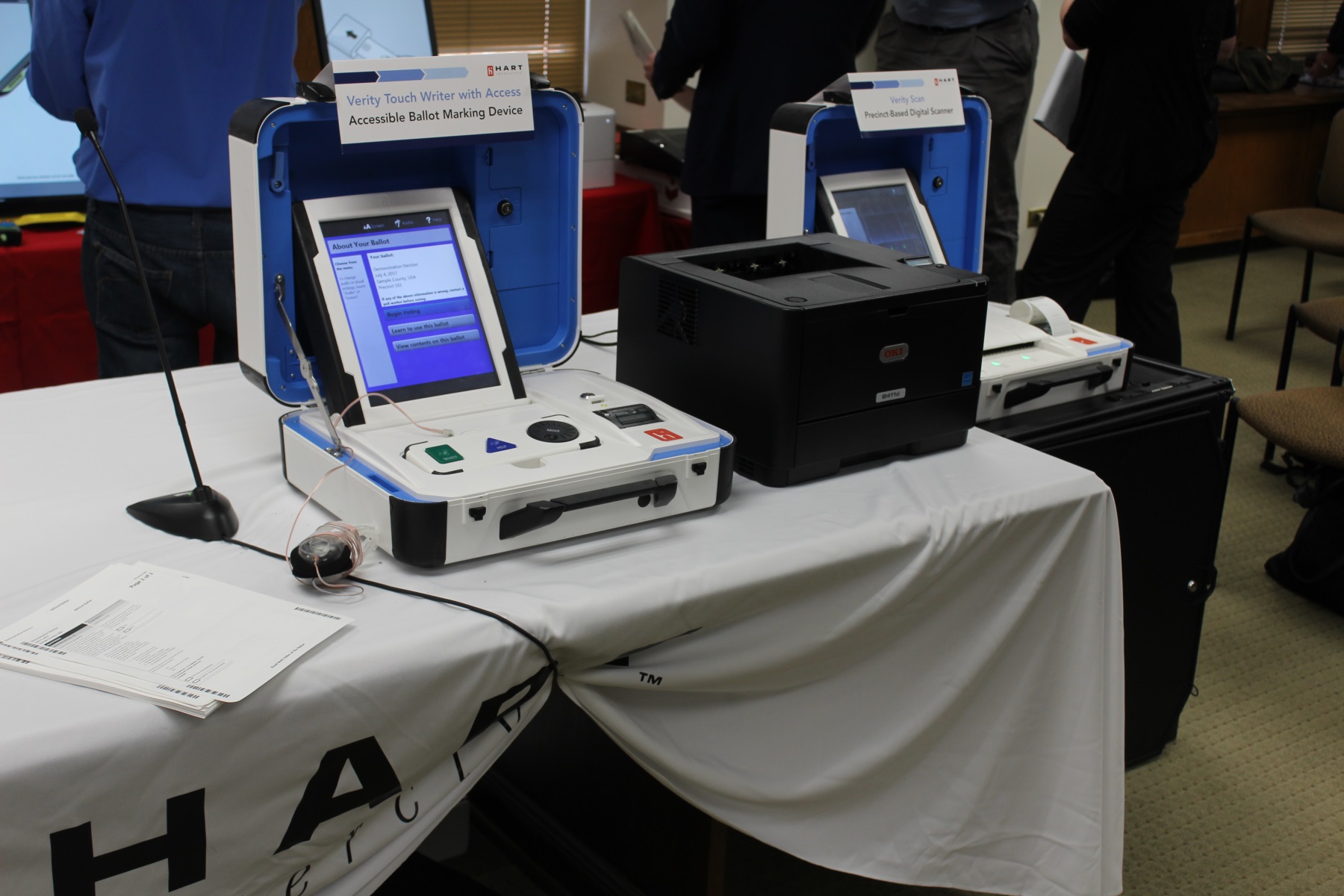Barcodes Stir Anxiety As Georgia Eyes New Voting System

Hart Intercivic is one of several election technology companies that hired lobbyists at the Georgia Capitol this year. It is also one of the companies that demonstrated to state lawmakers how Georgia could replace its electronic voting machines.
Johnny Kauffman / WABE
As Republican and Democratic state legislators hustle to pass a law moving Georgia toward paper ballot voting technology, election integrity advocates said they’re concerned a bill that already cleared the state Senate could lead to a new vulnerability in Georgia’s next voting system, if it becomes law.
One way a new system might work is through a touchscreen computer similar to those currently used in Georgia. It would print a paper ballot with a visual representation of a voter’s choices so they themselves can check for accuracy.
In some systems, counting the votes means scanning an entire image of the ballot that may include a timestamp and precinct information.
In other systems, barcodes or QR codes on a ballot would correspond with the voter’s choices, which can make counting easier and faster for election officials, said Peter Lichtenheld, vice president of operations with Hart Intercivic, one of several election technology companies that hired lobbyists at the statehouse this year.
“As far as security, I would say codes help with security,” said Lichtenheld.
But election integrity advocates in Georgia are concerned a bill awaiting approval in the state House, SB 403, would allow election officials to conduct recounts and audits by simply rescanning the barcodes on paper ballots.
“If you’re just using software to check software, there’s the possibility if there is some kind of problem with the software, you’re not going to catch it,” said Larry Norden, deputy director of the Brennan Center for Justice’s democracy program at New York University.
“You really do need a human process for checking the software process, and, potentially the way this is written, you won’t have that human process,” said Norden, who has reviewed the current version of SB 403.
Norden suggests the bill be amended to require a process for audits in which the voter-verified portion, or, as he puts it, the “human readable” portion of the ballot is reviewed.
In addition to sharing Norden’s security concerns, Sara Henderson, executive director of Common Cause Georgia, said a new voting system that uses barcodes is likely to end up costing the state more.
“We just think it’s sort of unnecessary,” Henderson said. “There’s really no reason that we even need to have it to begin with.”
Georgia is one of five states that still uses electronic-only voting machines without a paper trail that voters can verify for themselves. Cybersecurity experts say that makes the system vulnerable, and it’s part of why SB 403 has so much support in the Legislature.
The bill would require that Georgia move to a paper ballot system by 2020, and perform audits of the system by 2024.
The bill would also set up the state to go shopping for a new system in 2019.
Voting technology companies said they’re concerned outlawing the use of barcodes would limit Georgia’s options when it looks to the market next year.
“We feel like it’s important as legislators consider what the next voting system should be, that they don’t, or try not to, legislate technology out of potential use in the state of Georgia,” said Jeb Cameron, regional sales manager for Election Systems and Software.
State Sen. Bruce Thompson, the lead sponsor of SB 403, acknowledged WABE’s requests for comment, but did not return calls or provide a statement by deadline.








